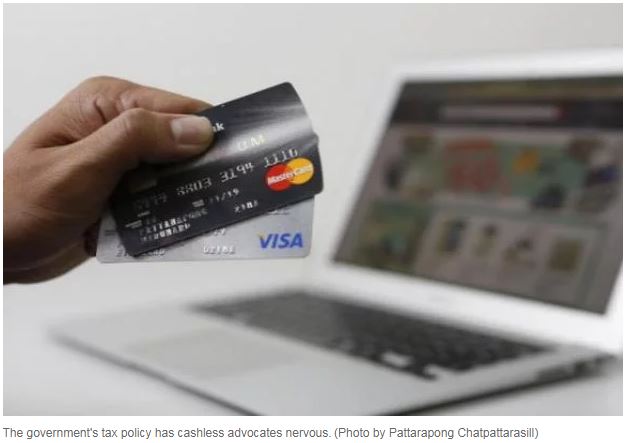Thailand: E-commerce players up in arms over tax
The government’s tax collection policy is threatening the growth of e-payments and discouraging a cashless society, say e-payment and e-commerce proponents.
The Bank of Thailand reported that the value of e-payments in June 2018 was 38.94 trillion baht, up from 33.56 trillion a year earlier.
The volume of e-payment transactions in June 2018 totalled 375 trillion, up from 250 trillion the previous June.
Pawoot Pongvitayapanu, founder of Tarad.com and former head of the Thai E-commerce Association, said the new tax system is correct in principle but the timing is off.
“It conflicts with the government’s e-payment policy and threatens the growth of e-payment because small businesses might avoid using online money transfers,” Mr Pawoot said. “The policy should be to wait for another two years, when merchants have embraced e-payment and QR code more pervasively.”
He said the Revenue Department should target big merchants or individuals with sales of 10-20 million baht a year via social commerce.
According to a survey by the Electronic Transactions Development Agency, Thailand’s e-commerce value in 2017 was 2.8 trillion baht, of which business-to-consumer (B2C) made up 868 billion baht (it’s expected to reach 1 trillion baht in 2018).
Mr Pawoot said he would assign his own Credence startup to develop tools for online merchants to calculate tax and account payments.
A source who is familiar with e-payment said the government’s tax collection policy will slow the adoption of e-payment, not only by online merchants but also those who use e-payment in their daily lives.
The new policy will impact e-payment gateway and e-wallet business operators because they previously provided just an overall summary of in-out transactions, not the details of transactions to the Bank of Thailand and the Revenue Department.
“Both merchants and consumers will shift to using cash on delivery for payment,” the source said.
The source agreed with the overall concept of tax collection to ensure fair competition.
Thanawat Malabuppha, president of the Thai E-Commerce Association, said the policy will hurt PromptPay as merchants and users move to other payment methods to avoid the banking system.
“The Revenue Department should run a pilot programme of random real transactions of online merchants to find the real pattern in order to minimise impact,” Mr Thanawat said.
A Bank of Thailand study found that the cost of cash management is four times higher than e-payment. Cash costs 1.26 baht per transaction, while e-payment is 0.10-0.40 baht.
Nuttawit Polwattanasuk, managing director of LNW Shop, said the new tax policy could panic online merchants for a few weeks, but in the end it’s hard to avoid online payment because online shopping is so convenient.
Piyachart Ratanaprasartporn, chief executive of e-wallet and e-payment gateway provider 2C2P Plus, said the tax policy could scare people off e-payment and dissuade small merchants from using QR codes.
Source: https://www.bangkokpost.com/business/news/1589018/e-commerce-players-up-in-arms-over-tax


 English
English




